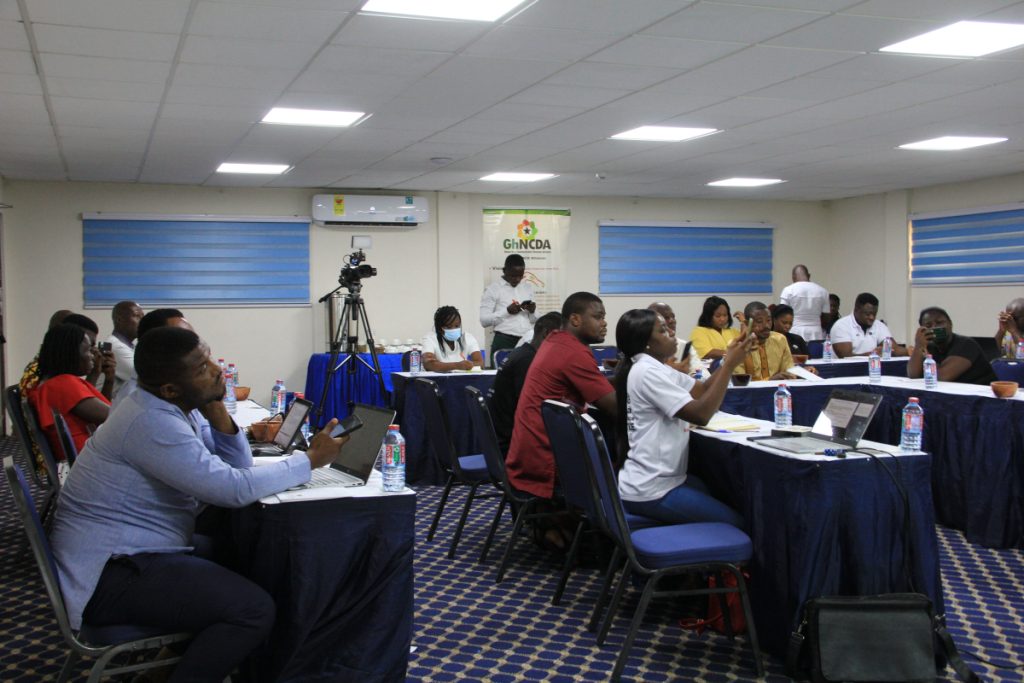By Albert Allotey, GNA
Accra, April 20, GNA – The Ghana NCD Alliance has held a stakeholders meeting for Community Health Management Committee (CHMC) members to sharpen their skills on the implementation of Community Scorecard to improve health delivery in their localities.
The Ghanaian Community scorecard represents a web-based platform designed to serve as a multifaceted instrument for management, action, accountability, and advocacy within the realm of healthcare.
It empowers community members to assess the quality of health service delivery in their localities while serving as a catalyst for community-driven initiatives aimed at enhancing healthcare provision.
Mr Godfred Tweneboah, Policy and Research Officer, Ghana NCD Alliance, said in 2022 the Alliance, in collaboration with the Ghana Health Service (GHS), embarked on a pioneering initiative to integrate non-communicable diseases (NCDs) into the fabric of the scorecard by utilising community-led monitoring.
“This endeavour, conducted under the auspices of ‘Our Views Our Voices’ initiative, sought to transcend traditional healthcare paradigms by positioning community members and persons living with NCDs as active participants within the healthcare system, rather than mere recipients,” he said.
Mr Divine Kwame Amanieh, the Deputy Chief Biostatistics Officer – Policy, Planning, Monitoring and Evaluation, GHS, gave a presentation on the general principles, objectives and goals that led to the setting up of the Community scorecard (CSC) and Health management committees.
He said CHPS compounds had been established in almost 7,540 catchment areas in the country and through their implementation principles and directives came a policy document, which informed the establishment of the CSC to train and give communities the power to participate and support in health service delivery.
Speaking in an interview with the Ghana News Agency, Mr Amanieh said the scorecard had been very effective at the primary healthcare facilities and had enhanced community participation in all the CHPS zones.
“Communities are now aware of what they should do to improve health service delivery. However, the challenges are now about motivation for CHMC members who lead in CSC and low female participation in the programme, which the Ghana Health Service is tackling,” he stated.
“We are now training the CHMC members to know how to mobilize resources within their localities to support their activities.”
He urged the communities to cooperate in the implementation of the programme to improve health delivery.

Mr Emmanuel Ayire Adongo, a consultant and a facilitator, in a presentation on the effectiveness of the CSC on healthcare delivery, particularly on NCD at the primary level, urged CHMC members to learn from their colleagues who had advanced in implementing the scorecard to improve their activities.
Mr Labram Musah, the National Coordinator, Ghana NCD Alliance, underscored the need for communities to prioritise their health, particularly NCDs such cardiovascular diseases, diabetes, and hypertension, to stay healthy.
“Our Views Our Voices’ through the Community-Led Monitoring initiative using the CSC and the information gathered have helped improve the provision of quality primary healthcare in the catchment areas of the country.”
Mr Ad-Adams Ebenezer, the Vice-Chair, Ghana NCD Alliance, in a closing remark, encouraged CHMC members to continue with their voluntary work to enhance health delivery.
“We cannot achieve the Universal Health Coverage (UHC) if nothing is being done at the community level. I am not in any way saying that the government is not doing anything. Government is doing its bit, but it is not enough, and it is left with us to do our part,” he said.
“We are left with six years to hit the UHC by 2030 and nothing much has been done so far. So, those of us in the communities and CHMC members need to do something to improve the health system.”
“Yes of course, we need money, but money cannot do everything.”
The Ghana NCD Alliance took the opportunity to unveil its 2024 Review Report on the Implementation of Community-Led Monitoring using the Scorecard.
Some of the recommendations in the report are periodic capacity building for CHMC members on the scorecard, and assessment, training/retraining on the use of the web-based action tracker system, ensuring total NHIS coverage of services at the CHPS facilities and upgrading some of the CHPS to health centres to meet the needs of the communities.
GNA